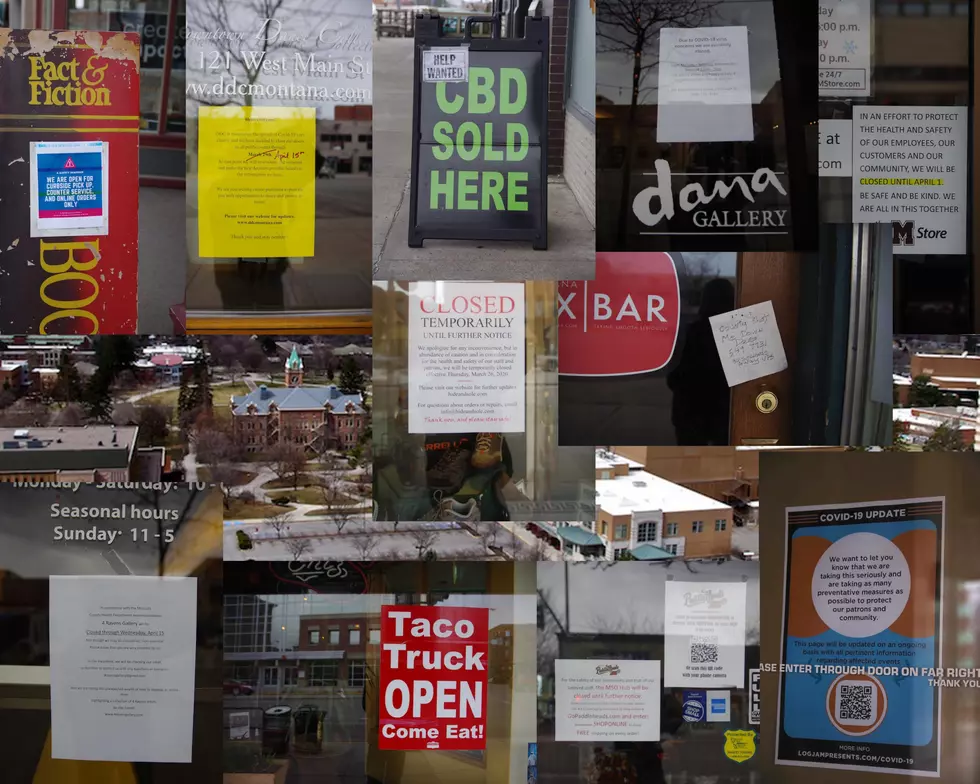
For the history books: Missoula historians begin archiving local COVID response, stories
When the coronavirus pandemic reached Montana around the middle of March, it prompted local officials to consider what once was deemed both impossible and unthinkable.
They raced to close businesses and issue directives asking people to stay at home. They delayed tax collections, waived common fees, and moved to purchase property to provide shelter for quarantine.
Along the way, they've also left a paper trail, digital and real, that has historians buzzing with anticipation.
“We're living though a watershed moment in American history,” said Matt Lautzenheiser, executive director of the Historical Museum at Fort Missoula. “I think of some of the things that have happened in my lifetime – I think of the Challenger disaster and 9/11, and this (pandemic) is quickly becoming one of those moments.”
Lautzenheieser is coordinating an effort to document the coronavirus pandemic in real time, something he admits is foreign to historians. The project, dubbed “Documenting COVID-19 in Missoula County: A Community Archive Project,” includes a host of players, including city and county government, the University of Montana and the Downtown Missoula Partnership.
The project encourages agencies, organizations and community members to document their actions and thoughts during the pandemic. That record will be collected and maintained for future generations at the Mansfield Archives.
“We're trying to capture this from a county perspective,” said Lautzenheieser. “We're going to collect everything from emails to memos to meeting notes. We hope to collect oral histories too – all sorts of different things. It's anything related to this crisis and how our community is dealing with it.”
Over the past month, reporters Jim Harmon at the Missoula Current and Kim Briggeman at the Missoulian, among others, have pored through old newspaper accounts of the 1918 Spanish flu, gleaning anecdotes from the prior pandemic for reconsideration by today's readers.
The records shed light on a crisis that swept the nation more than a century ago, from orders to wear “anti-flu” masks to the exploits of Dr. George Soper – a military epidemiologist who tracked down “Typhoid Mary” and is viewed by some as Dr. Anthony Fauci's predecessor.
While records from past historical events can be spotty at best, this time around, local historians hope to chronicle events as they occur and across a range of modern platforms.
“It's not something historians are used to doing,” said Lautzenheieser. “We're used to documenting things that happened years ago, not creating an organization and documenting in the moment. As a historian, it's always frustrating because a lot of things don't get saved. We're stuck piking and choosing.”
Missoula County Commissioner Dave Strohmaier began thinking about the project a month ago as museums and other organizations struggled to find ways to present their work in a virtual environment. At the time, he said, nobody was looking at the government response to the virus, and that presented an opportunity.
Local governments have adjusted to the changes, successfully or otherwise, by resorting to conference calls and Zoom meetings. Along the way, they've created an archive that could provide fodder for future generations and the historians that walk among them.
Toss in the litany of memos, directive and resolutions and the collection has already grown to a substantial one.
“More often than not, it's way after the fact, and sometimes significantly after that fact that we're looking back on trying to craft a narrative of what happened,” said Strohmaier. “We have the opportunity in real time to jump on this and help preserve the documentary record, but also help shape it by informing folks who are collecting documents what they should be hanging on to.”
Archives and Special Collections at the University of Montana's Mansfield Library will archive the collected materials and make them available to public officials, scholars and others after the project wraps up.
“We are living in a truly historic time,” said Donna McCrea, head of Archives and Special Collections. “How we react and respond – as individuals and as a community – will be of interest 10 years from now and 100 years from now. We know that the best way to ensure this content is available to future generations is to gather it proactively right now.”
That proactive effort could help avoid the frustrations encountered by Lautzenheieser and other historians as they attempt to compile a narrative of past events. Lautzenheieser has gathered information on the interment camp at Fort Missoula, but is often stymied by incomplete records and missing information.
Logging the documents, thoughts and fears of today's population – and doing it in real time – will benefit future researchers, he said.
“Doing research on the alien detention center, we're really lacking a lot of the basic documents, the things at the camp, the daily records of who was doing what,” he said. “That's a big hole we have doing that research. We're using those lessons we learned to collect those things moving forward.”
Public documents created by government agencies during the pandemic will add key details to the record. But such records are often pedestrian and formulaic. The human stories will add color to the archives.
In other words, Lautzenheieser said, it won't be a top-down account of the 2020 pandemic, and government officials won't get to write their own version of history.
“It will be a well-rounded picture of not just government, but everyday folks,” said Lautzenheieser. “Being able to see how this has developed over the course of weeks and maybe months will be interesting. You can trace how that develops. It'll be interesting down the road for other government officials and historians to see how the county came up with that idea.”
People can submit written materials, photographs, audio and visual files, and other documents reflecting their experiences during this period by following this link to the Mansfield Library’s website.
https://missoulacurrent.com/art/2020/04/montana-spanish-flu/
https://missoulacurrent.com/art/2020/04/spanish-flu-carroll-college/
